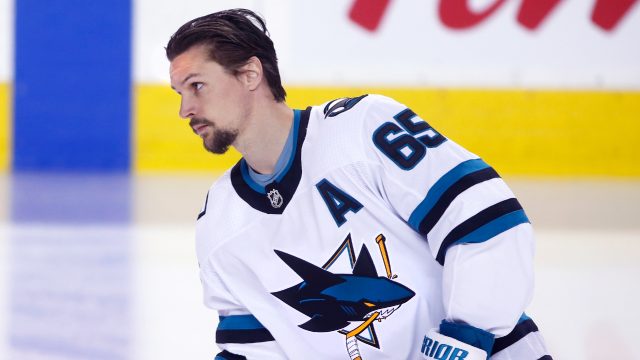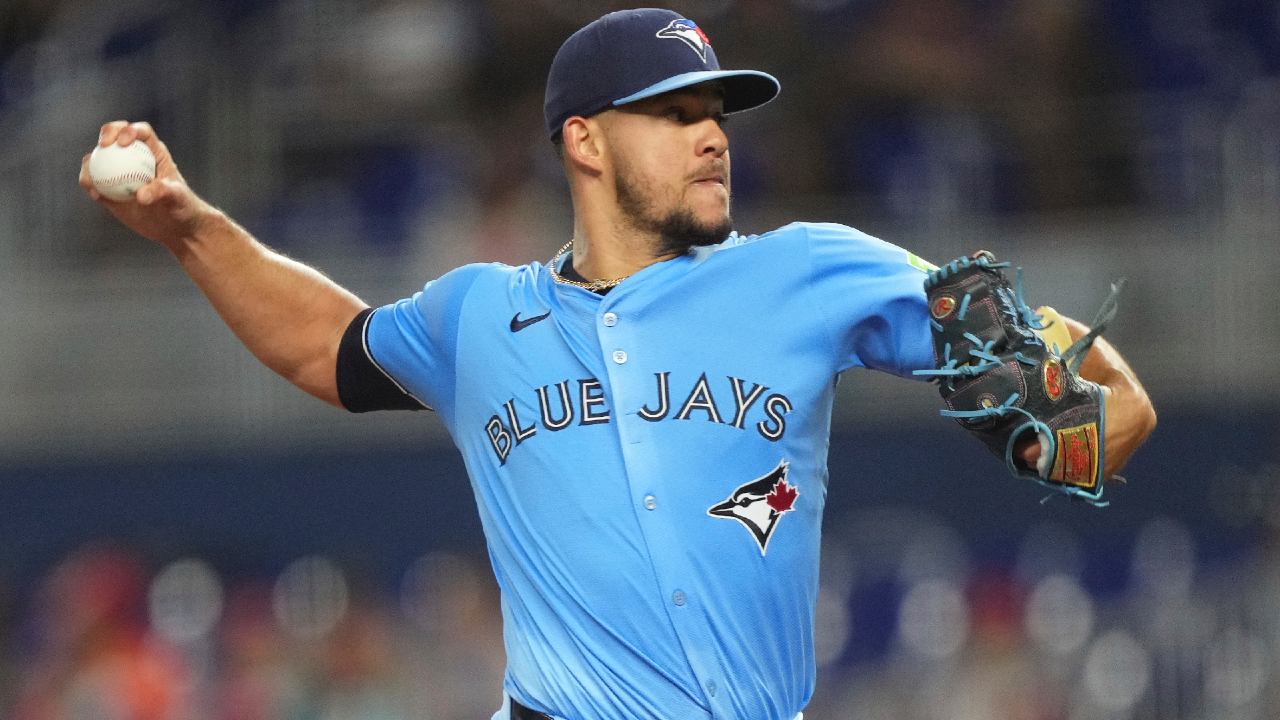
TORONTO — To best understand why the Toronto Maple Leafs traded for Dakota Joshua out of Vancouver Thursday evening, you must first revisit the team’s 2025 playoff demise and the greatest reason why they couldn’t get past the Florida Panthers.
No, it wasn’t because Sam Bennett chicken-winged Anthony Stolarz into the ambulance or because Mitch Marner and Auston Matthews combined for two goals in seven games. (Though neither of those factors helped the cause.)
The most concerning and important swing of the second-round showdown took place on the third line.
Florida rolls out the best one in hockey; Toronto was still searching for one.
While Matthews and John Tavares played tug-o-war with Aleksander Barkov and Bennett, the Panthers’ dynamic trio of Brad Marchand, Anton Lundell and Eetu Luostarinen feasted like kings.
Old Marchand and the young Finns led all lines in that series with a whopping 20 combined points and combined plus-17 rating, all while chipping in on special teams and spelling off Barkov for a chunk of the Matthews matchups.
Straight up, that group dominated. Then went out and tilted the ice against Carolina and in the Stanley Cup Final over Edmonton.
Enter left wing Joshua.
Enter centreman Nicolas Roy.
Enter the idea that Brad Treliving’s stated goal of acquiring a top-six forward to replace some of Marner’s contributions also comes with a subplot of developing a legitimate, two-way, hard-to-play-against third line for the post-season.
Originally drafted by the Maple Leafs with the 128th choice of the 2014 draft, the 6-foot-3, 206-pound Joshua is chiselled in the mold of Treliving and Craig Berube’s bottom-six dream forwards.
The Dearborn, Michigan, native is big and strong. He chucks his body around.
He doesn’t require sheltering; as a Canuck, Joshua started 59.6 per cent of his shifts in the D-zone
And most important: He elevates come playoff time.
Vancouver’s 2024 mini run served as Joshua’s coming-out party and the reasoning behind the biggest contract of his life (four years, $13 million), which now goes on Toronto’s books through 2027-28.
He scored four goals and four assists (all even strength) in 13 post-season games while throwing 74 hits and stealing five pucks.
The Canucks just traded a fan favourite for a 2028 fourth-rounder and $3.25 million in cap space they’d prefer to use on a centre.
The summertime addition of the 29-year-old Joshua — like Roy and Matias Maccelli before him — is another small step toward spreading responsibility, scoring, and money among the formerly top-heavy Leafs forward corps.
All three new guys make at least $3 million, but their combined salary still falls under Marner’s $12 million in Vegas.
The Joshua trade signals balance and hints that Berube’s strategy will be to sic Roy and Joshua and a right winger TBD (Bobby McMann perhaps?) against some of the opposition’s top offensive players to free up Matthews and Tavares more offensively.
Surely, Berube — who coached Joshua as a rookie in St. Louis and has been entrusted by MLSE president Keith Pelley to have a meaningful voice in roster construction — is bullish on the player’s hard compete level and soft hands (he scored 18 goals in 2023-24).
“At the end of the day, managers manage and coaches coach, but I believe — and maybe other people do it differently — that you have to have a close relationship with your coach. You have to get his input. You have to know what he likes,” says the likeminded Treliving.
“I look at it as a partnership. We are partners, and that is the way it works best.”
The deal is also very much a bet on an offensive bounce-back (ditto Maccelli), and an off-season of full health and regular training should result in a stronger athlete.
Joshua missed 2024’s training camp and the first month of last season while undergoing treatments for testicular cancer.
“Dakota went through a lot last season before the year even started, and we were very impressed in how he handled such a difficult off-ice situation,” Canucks GM Patrik Allvin said in a statement. “Once healthy, he tried hard to help the team in many ways, and we want to wish him the best moving forward in Toronto.”
The best case for Toronto is that Joshua joins Roy, energizes the Maple Leafs’ depth, boosts the PK, and finally gives the team a third line worthy of trust.






